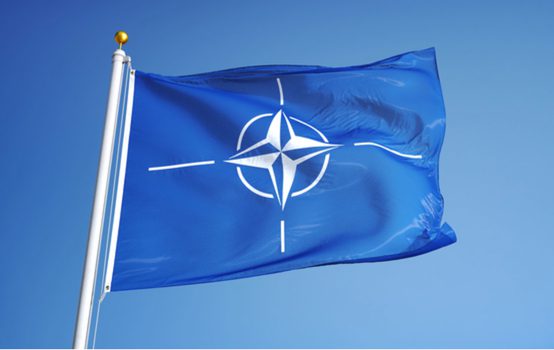Time for a Change at NATO

Is it time for member states to amend the North Atlantic Treaty, a document that is nearly 70 years old and was constructed at a time when the Cold War was just kicking into high gear?
For the most dedicated Atlanticist, even suggesting NATO’s founding document may require some type of revision amounts to blasting the world’s most successful military alliance as a relic of the past. This view, however, is shortsighted.
If NATO is to survive, it needs to introduce some degree of accountability on European members that are keeping their military spending down in order to fund domestic entitlements. Including the United States, only five of NATO’s 28 members spend the 2 percent of GDP on defense that the alliance’s political leaders have agreed on as the benchmark. And of those other four members, only the United Kingdom can be labeled as a powerhouse on the European continent. Major countries such as Germany, France, Italy, and Spain continue to fall short—Spain, in fact, contributes less than 1 percent of GDP.
They are not only shortchanging themselves, but also doing great harm to the integrity of the entire alliance and taking Washington’s support for granted. More often than not, the United States is left holding the bag and providing the money, logistics, and enabling support to fill the void. The Obama administration’s allocation of $3.4 billion for the European Deterrence Initiative next year isn’t an accident, but partly a response to Europe’s unwillingness to spend what they themselves promised.
Congress isn’t free from blame, either. Last month, in a barely reported development before Congress adjourned for the holiday season, a Senate committee voted to favorably report Montenegro’s accession to NATO to the full Senate for deliberation. “The Committee on Foreign Relations,” the report stated, “believes that Montenegro has the potential to make contributions as a member of NATO. … Montenegro’s membership will encourage the continued spread of peace and democracy in the region, and its willingness to contribute to ongoing NATO operations will augment NATO’s resources.”
Montenegro is a country with a GDP of just $4 billion—only 1.6 percent of which is spent on defense. The country’s military has only 2,000 active-duty service members, as my Defense Priorities colleague Charles Peña pointed out in November. It also suffers from pervasive levels of corruption within its government and security services. Moreover, opening NATO’s doors to another nation in southeastern Europe may cause the Russians to retaliate.
Ask several European security specialists about the changes that NATO should adopt, and you’ll likely come away with several different answers. Yet one the new administration should seriously consider—and one that members of Congress would be wise to support if they indeed are concerned about NATO’s health and sustainability—is a new clause setting forth a suspension or expulsion mechanism for member states that are backsliding on democratic principles or refusing to spend the necessary dollars on defense.
The reason NATO has been so successful in keeping Europe whole, free, and at peace is that the alliance offers a credible deterrent to countries like Russia that otherwise may test its Western neighbors more aggressively.
British Prime Minister Theresa May and President Donald Trump admitted as much during their joint press conference this past Friday, when May reaffirmed the historical value and role that the defense alliance has had in assisting Europe’s reconstruction after World War II and its deterrent against Soviet adventurism. Europe has been as peace for over seventy years because of that security commitment—but it’s a commitment that all NATO members need to take seriously.
It’s time for NATO to establish an internal deterrent as well: make a concerted effort to meet your spending commitments, or risk suspension or expulsion and a public diplomatic embarrassment. This shouldn’t be a controversial concept—rather, it could serve as the tough-love mechanism that years of begging and pleading from policymakers in Washington and Brussels haven’t.
Daniel DePetris is a fellow at Defense Priorities.
Comments